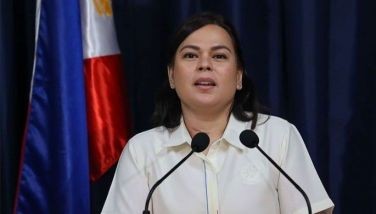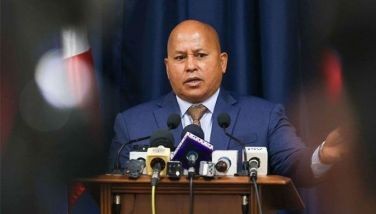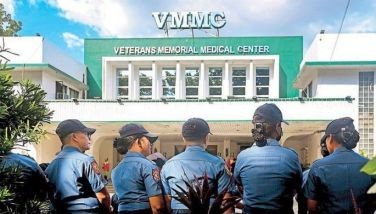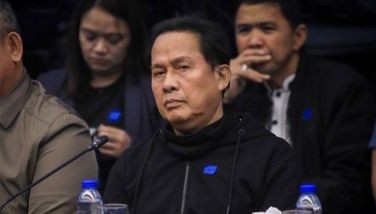Pinoys could make a difference in US polls
September 10, 2004 | 12:00am
WASHINGTON — Community leaders are urging Filipino-Americans across the United States to register and vote in the November polls, saying they could make the difference in a closely contested presidential race.
With less than two months to go, the election is too close to call – it’s Republican George W. Bush by a head or Democrat John Kerry by a nose depending on which poll one chooses to believe on any given day – and a small ethnic minority could tip the balance of victory.
The mantra of all politicians is "remember Florida," a reference to the 2000 presidential election which Bush won by the barest of margins – 537 votes to be exact – after a recount in some constituencies was halted by the US Supreme Court.
By winning Florida, Bush captured all of the state’s 25 electoral votes, taking his final electoral tally to 271 votes, five more than Al Gore’s total although Gore led Bush by more than half a million popular votes out of 105,405,100 votes cast nationwide.
Ethnic communities hoping to translate their numbers into political clout are pounding home the message that "every vote counts" in urging their people to go to the polls.
The Filipino-American community has appealed to people with US citizen relatives living in the Philippines to press them to vote by mail no later than Oct. 15. An estimated 130,000 US citizens live in the Philippines, many of them natural-born Filipinos who became naturalized Americans and then returned home.
"We become part of America when we fight for our economic and political visibility. This can only be done if we deliver ‘key bloc votes’ to candidates that support our most single important issue," the World War II Filipino veterans, said political activist Sonny Sampayan, a retired US Air Force veteran.
Analyzing the 2000 election results and the 2000 Census state-by-state, Sampayan said the estimated 2.5 million Filipino-Americans have a strong potential of swaying the outcome of the 2004 election in Florida, Wisconsin, New Mexico, Oregon, Hawaii and Nevada.
He pointed out that in Florida, which Bush barely carried in 2000, there are over 67,000 Filipino-Americans residing in the state. There are also 7,800 Filipino-Americans living in New Mexico, which Gore carried by 366 votes.
Other ethnic communities have even greater power to tip the election results, especially the 40 million-strong Hispanic-American community, the largest ethnic group in the US.
Eric Lachica, executive director of the Washington-based advocacy group American Coalition for Filipino Veterans, said Filipino-Americans have to vote as a bloc behind the issue of better benefits for Filipino WW II veterans.
Filipino-American organizations all support the veterans issue and only differ in the scope of the benefits they want for the veterans.
Some are pushing for what they say is more realistic and doable in the light of America’s burgeoning budget deficit — a $100 monthly pension for individual veterans residing in the Philippines. This carries an annual price tag of $22 million.
Others, like the National Federation of Filipino-American Associations, want an $800 monthly pension for Filipino veterans living in the Philippines to put them on par with their US counterparts. The estimated price tag for this benefit is $238 million annually.
About 21,000 veterans live in the Philippines while 8,000 live in the US, most of whom receive the same benefits as their American counterparts.
Lachica said Filipino-Americans will vote for the candidate they see as supportive of better benefits for veterans.
With less than two months to go, the election is too close to call – it’s Republican George W. Bush by a head or Democrat John Kerry by a nose depending on which poll one chooses to believe on any given day – and a small ethnic minority could tip the balance of victory.
The mantra of all politicians is "remember Florida," a reference to the 2000 presidential election which Bush won by the barest of margins – 537 votes to be exact – after a recount in some constituencies was halted by the US Supreme Court.
By winning Florida, Bush captured all of the state’s 25 electoral votes, taking his final electoral tally to 271 votes, five more than Al Gore’s total although Gore led Bush by more than half a million popular votes out of 105,405,100 votes cast nationwide.
Ethnic communities hoping to translate their numbers into political clout are pounding home the message that "every vote counts" in urging their people to go to the polls.
The Filipino-American community has appealed to people with US citizen relatives living in the Philippines to press them to vote by mail no later than Oct. 15. An estimated 130,000 US citizens live in the Philippines, many of them natural-born Filipinos who became naturalized Americans and then returned home.
"We become part of America when we fight for our economic and political visibility. This can only be done if we deliver ‘key bloc votes’ to candidates that support our most single important issue," the World War II Filipino veterans, said political activist Sonny Sampayan, a retired US Air Force veteran.
Analyzing the 2000 election results and the 2000 Census state-by-state, Sampayan said the estimated 2.5 million Filipino-Americans have a strong potential of swaying the outcome of the 2004 election in Florida, Wisconsin, New Mexico, Oregon, Hawaii and Nevada.
He pointed out that in Florida, which Bush barely carried in 2000, there are over 67,000 Filipino-Americans residing in the state. There are also 7,800 Filipino-Americans living in New Mexico, which Gore carried by 366 votes.
Other ethnic communities have even greater power to tip the election results, especially the 40 million-strong Hispanic-American community, the largest ethnic group in the US.
Eric Lachica, executive director of the Washington-based advocacy group American Coalition for Filipino Veterans, said Filipino-Americans have to vote as a bloc behind the issue of better benefits for Filipino WW II veterans.
Filipino-American organizations all support the veterans issue and only differ in the scope of the benefits they want for the veterans.
Some are pushing for what they say is more realistic and doable in the light of America’s burgeoning budget deficit — a $100 monthly pension for individual veterans residing in the Philippines. This carries an annual price tag of $22 million.
Others, like the National Federation of Filipino-American Associations, want an $800 monthly pension for Filipino veterans living in the Philippines to put them on par with their US counterparts. The estimated price tag for this benefit is $238 million annually.
About 21,000 veterans live in the Philippines while 8,000 live in the US, most of whom receive the same benefits as their American counterparts.
Lachica said Filipino-Americans will vote for the candidate they see as supportive of better benefits for veterans.
BrandSpace Articles
<
>
- Latest
- Trending
Trending
Latest
Trending
Latest
Recommended


































